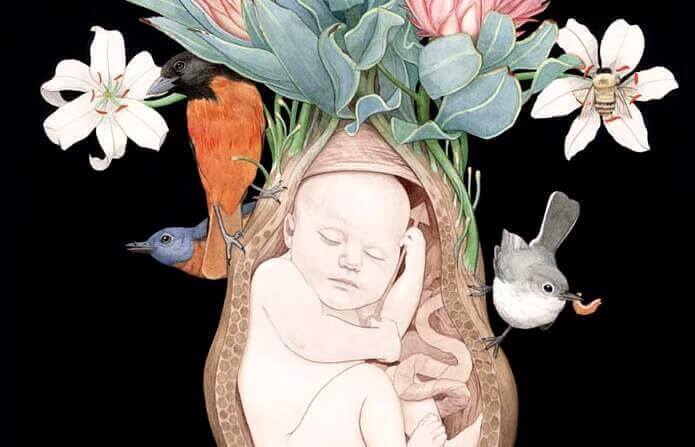Being pregnant is a magical experience for many women, however, in motherhood much attention is paid to the physical aspects, leaving aside the psychological component, an essential part of this whole process, studied by perinatal psychology. that addresses the psychological changes that occur from conception to the end of the postpartum period.
Although pregnancy is a wonderful experience, many mothers may feel lonely, poorly dressed, or have symptoms of anxiety and stress. If you add to that living in a problematic environment or having a traumatic birth, you may end up with postpartum depression. prevent and improve such situations as a guide to the management of difficult situations in order to promote adequate maternal and child health.
- However.
- This is not the only relevant thing that perinatal psychology can offer mothers.
- But also provides mental tools and strategies to build a healthy bond with the baby and improve their well-being and quality of life.
Mothers face many fears when a baby arrives. ” “Something’s not going to show up on the ultrasound?” the doctor made a funny grimace, is there anything that’s hiding from me?
“If your pregnancy has been carefully planned, or if you’ve taken a surprise, one thing is for sure: your life will never be the same again. “- Catherine Zeta Jones-
Motherhood implies a radical change in fear, insecurity and stress. Premature or traumatic delivery; difficulties breastfeeding or linking miscarriage or design problems with your baby?
These difficulties faced by many mothers can be better treated if they have the help of perinatal psychology, through which they will find psychological resources to face a grieving process after an abortion, face the various difficulties of parenthood and establish different ways to strengthen a healthy bond with their child.
Perinatal psychology is a way to preserve the mental health of the mother, ensure her well-being, accompany her at this stage and improve her quality of life, in addition, this specialty works on self-esteem in order to address difficulties. from a different perspective.
We talk about perinatal psychology for women, but we must also include the father and the family, fundamental pillars that must be involved and have an open attitude to receive tools and knowledge that help the mother.
The mother is the central axis of everything. The pregnancy process affects her more than others due to the physical changes she undergoes, it is also necessary to take into account hormonal and emotional changes, so perinatal psychology provides support:
Postpartum depression is a problem that affects the emotional connection of the mother with the baby, to avoid this it is recommended skin-to-skin contact between the mother and the baby.
Perinatal psychology is very important to provide the essential psychological support that every mother, partner and family needs, and above all helps to create the mother-child bond that is formed naturally.
This bond begins during pregnancy, when the baby is in your mother’s uterus. From this moment on, a special relationship develops that will become stronger when the baby is in his mother’s arms.
There may be problems with breastfeeding, as well as difficulties coping with the baby’s crying or problems reaching out and meeting the baby’s needs, especially if the mother suffers from postpartum depression. Touch is extremely important and further identifies and meets the baby’s needs.
Perinatal psychology teaches the mother to relate to her child with affection, which is critical to building a secure bond that will serve as support and safety.
“When adults have trouble giving the child what they ask for, is it up to us to review our child’s helplessness, rather than blame him?-Laura Gutman-
Perinatal psychology provides solutions to the different stages of pregnancy until the end of postpartum, seeking the well-being and balance of mother and child; its ultimate goal is to create a bond that fosters a healthy attachment to ensure a gap-free future.

